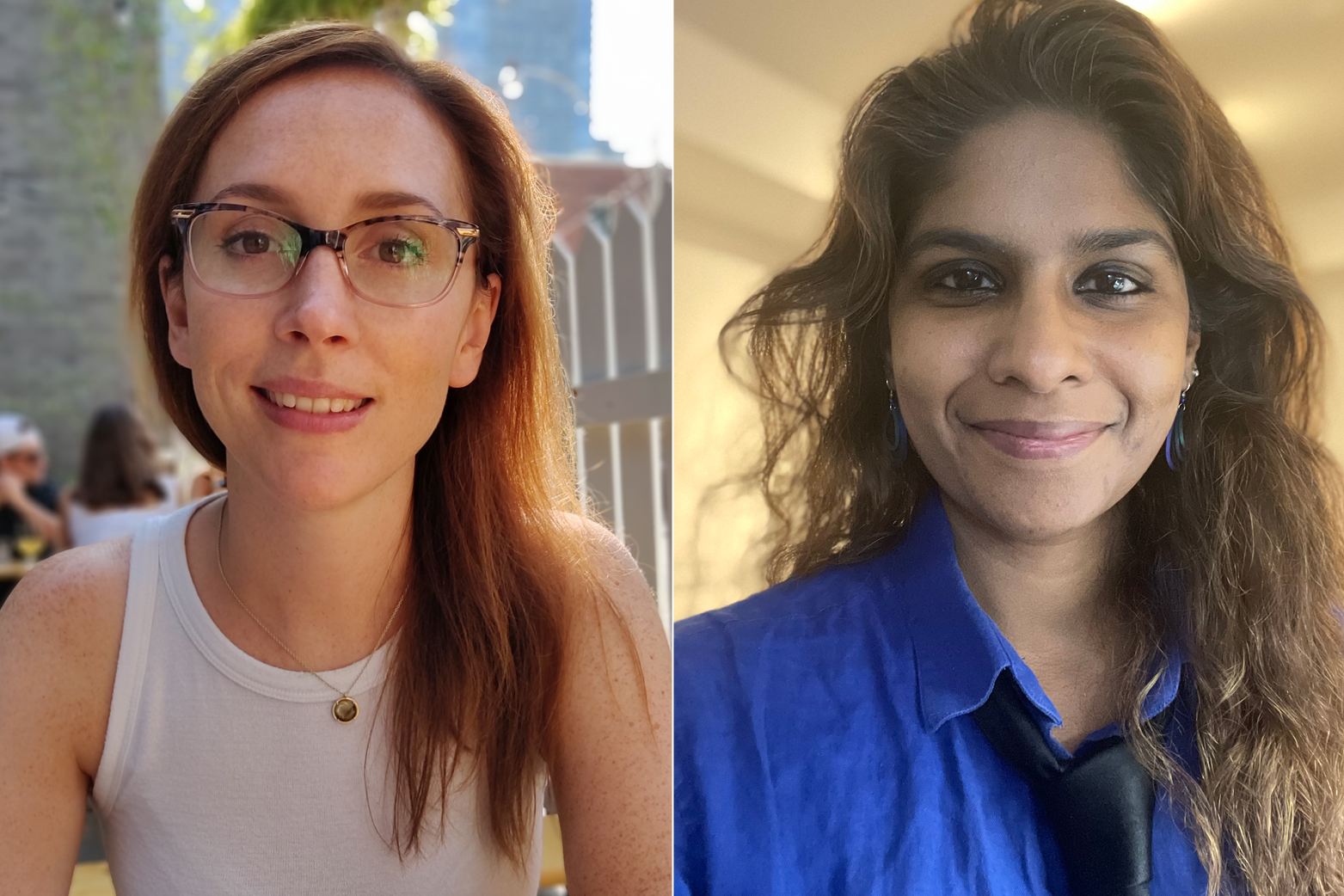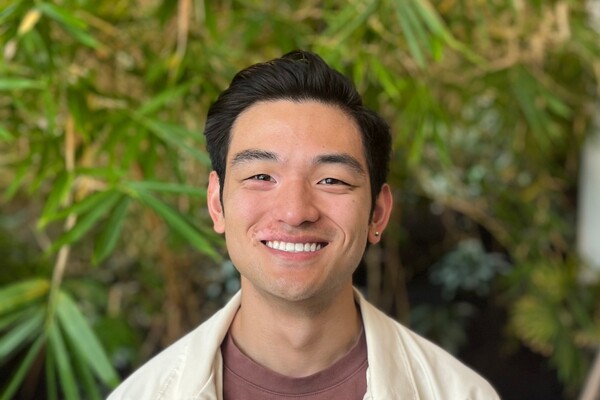Main Second Level Navigation
2022 Research Excellence Awards Recognize Advances in Tissue Engineering and Computer Vision

Postdoctoral researchers in the Donnelly Centre, Louise Moyle and Shamini Ayyadhury, have been awarded the 2022 Research Excellence Award. The annual award recognizes outstanding researchers at the postdoctoral level who are conducting multidisciplinary research projects in the Donnelly Centre and with collaborators from across U of T and its affiliated hospitals.
Moyle and Ayyadhury were selected as winners by a judging panel comprising their peers at the Centre: the Charles H. Best Fellows Guillermo Gonzalez and Marina Musa, the postdoctoral fellow Jeremy Lant, and the research associate Helena Friesen.
Moyle recently completed her postdoctoral research in Associate Professor Penney Gilbert’s lab where she investigated how adult muscle stem cells repair skeletal muscle. Her aim was to glean insights that could be used to develop treatments for muscular disorders and muscle wasting in old age. Specifically, Moyle investigated how extracellular physical cues, applying force for example, influence the biology of resident muscle stem cells that are responsible for tissue repair. While much is known about the role of growth factors in stem cell biology, mechanosensation has remained poorly explored. Moyle initiated an innovative and collaborative project with Professor Aaron Wheeler’s lab in the Donnelly Centre to measure gene expression changes in individual muscle stem cells lacking the protein machinery required for mechanosensation. Her research has the potential to reveal key molecular players in stem cell self-renewal and differentiation and to inspire new strategies for treatment development.
To increase collaboration across U of T, Moyle established the Myogenesis Scientific Discussion Group, a trainee-led seminar series featuring trainees working in muscle research labs from across U of T and its affiliated hospitals as well as international speakers.
Outside the lab, Moyle is an avid science communicator and a participant in public events such as Soapbox Science, a platform for female researchers to promote their science and challenge the idea of a stereotypical scientist. She also participates in outreach efforts aimed at high school students with the goal of getting more Canadian youth excited about science and to consider pursuing careers in STEM. In her free time, Moyle has also contributed to the Toronto Science Policy network which promotes communication between scientists and policy makers.
“I am so thrilled to be a recipient of a Donnelly Centre Research Excellence Award, and proud to be amongst a remarkable list of previous and current winners,” said Moyle who is now Lead Scientist at the Centre for Commercialization in Regenerative Medicine (CCRM) in Toronto where she is helping translate stem cell research into cell and gene therapies.
“It means a great deal to me as the project involved a lot of hard work and risk, which couldn’t have been done without the support, guidance and enthusiasm of everyone in the Gilbert and Wheeler teams.”
This award means a great deal to me as the project involved a lot of hard work and risk and it couldn’t have been done without the support, guidance and enthusiasm of everyone in the Gilbert and Wheeler teams.Louise Moyle, former postdoctoral fellow in the Gilbert lab in the Donnelly Centre
Ayyadhury is a computational biologist in Professor Gary Bader’s lab where she is developing computer vision approaches for the analysis of brain tumours, with a specific focus on globlastoma (GBM), the most aggressive brain cancer sub-type. Ayyadhury is creating AI-centric pipelines, integrating computer vision with several single-cell techniques that can improve the analysis, stratification and treatment of patient-derived tissue samples. Her background as a wet-lab scientist guides her creativity in applying AI and other computational methods that will open the door for novel drug screening platforms and in understanding tumor evolution. Her efforts will further advance the long-standing collaboration between the Bader lab and the groups of the neurosurgeon Dr. Peter Dirks at The Hospital for Sick Children, Dr. Trevor Pugh at the Princess Margaret Cancer Centre and Dr. Samuel Weiss at the University of Alberta, that seeks to predict treatment from unique features of patient-derived glioblastoma stem cells, which are believed to drive tumour formation. She is also working with Dr. Cheryl Arrowsmith at the Structural Genomics Consortium, Dr. David Andrews from Sunnybrook Institute as well as other international collaborators, on developing computer vision algorithms that will integrate high-throughput microscopy and single cell spatial molecular platforms to understand brain cancer architecture and 3D evolution.
Furthermore, Ayyadhury is an ambassador and Chair of the Education & Research Subcommittee with Brain Cancer Canada (BCC), where she actively engages with patients and caregivers, advocating the importance of interdisciplinary scientific research as well as non-traditional research involving the social, psychological and economic aspects of GBM treatment. She is also the President of the Pitchmasters Club, as part of the International Toastmasters organization, where she helps others with self-confidence and public speaking.
“When I received news of winning this award, I sighed – in relief,” said Ayyadhury. “I felt an overwhelming sense of gratitude at being acknowledged for my work and also for my ideas and thoughts. Receiving this award will motivate me to improve and advance myself and to remember to pay the support that I have received from my supervisors and colleagues, forward.”
Ayyadhury plans to pursue a career in interdisciplinary research, working to design AI-integrated imaging, robotics and wet-lab tools for early tumor detection, improving diagnosis and prognosis and the development of targeted treatments.
Receiving this award will motivate me to improve and advance myself and to remember to pay the support that I have received from my supervisors and colleagues, forward.Shamini Ayyadhury, postdoctoral fellow in the Bader lab in the Donnelly Centre
News



